Fiction
Nonfiction
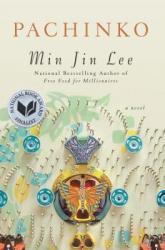
Read a story of family, loyalty, racial prejudice and the meaning of difference. Enjoy the individual triumphs and failures of several generations of one family and changes they experience as they live and learn. Find out about the old time gambling sport, pachinko and its effects on an extraordinary family. This is the kind of book that makes you miss your "friends" when you finish it.
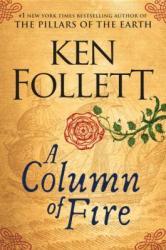
Travel back in time and walk the lanes and byways, sail the seas, or straddle a horse and visit with a gamut of folks from queens and kings of European powers to courtiers, to merchants and villagers, to pirates and tradesmen. Get to know the characters in the fight for religious tolerance and witness the blood that was shed for this privilege. The struggle between Catholic and Protestant worshippers becomes real with the unspeakable cruelty among humans who believe their beliefs trump the beliefs of others. Call it the devil. An arduous but enjoyable read.
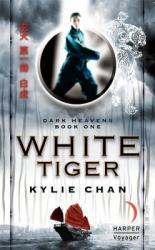
Kylie Chan mixes modern life with traditional Chinese mythology in her enthralling tale. The story follows Emma, a nanny for a young girl of a wealthy business man living in Hong Kong. As Emma becomes more and more connected with her charge, she become more entangled with a mystery that surrounds the household. She soon discovers that her employer is an ancient Chinese God, and is pursued by demonic forces. Kylie Chan writes with a faced-pace adventurous quality that keeps readers on their feet.
(Reviewer Grade: 12)
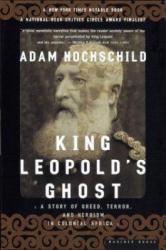
Adam Hochschild brings to light an important part of history that is largely ignored in relations to the horrors of the colonization of Africa. Hochschild follows, in detail, the formation of the Belgium colony in the Congo. His descriptions and the information he puts forth draws the readers in and highlights the travesty that King Leopold let loose on this part of Africa and its people. The details that Hochschild puts into his book reveals hidden intrigues that keep the readers engaged. And the history that Hochschild relates to the development of this colony allows readers to see the bigger picture. This book addresses key topics, like racism and slavery, that develop readers understanding of this time and the need to prevent similar situations in the future.
(Reviewer Grade: 12)
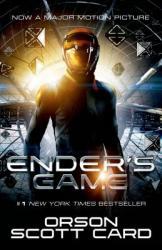
Ender's Game is an enthralling and thrilling sci-fi following a young boy as he is prepped to save the world. Ender departs for battle school at the ripe age of 6, where he is thrust into a world were children go head to head in a competition to be the best, fight in an all out war, and earn all the glory.
Although young and inexperienced, Ender is the best. But things seem to be stacked against him....
Orson Scott Card writes with incredible dexterity and Ender's Game pulls you into a new world.
(Reviewer Grade: 12)
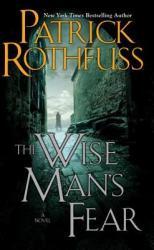
A Wise Man's Fear is the second installment of the KingKiller Chronicles following The Name of the Wind. Rothfuss continues Kvothe's tale as he learns to navigate new worlds and new relationships. Unlike many sequels, A Wise Man's Fear is not lacking in adventure or astute characters. Having left the university, Kvothe faces assassination plots, powerful fey, and a trial by powerful mercenaries. In this book, we really see Kvothe become a hero and stretch his legend across the four corners of civilization. Rothfuss writes with the same dexterity as seen previously, and he always leaves you wanting more.
(Reviewer Grade: 12)
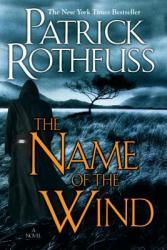
The Name of the Wind follows the story of Kvothe, a highly clever, not so childish kid who faces perils uncommon in this world and the next. Name of the Wind is not just another coming-of-age story. Rothfuss weaves an incredible story of intrigue. This book, while a little daunting at first, is worth every page. The use of language is masterful and Rothfuss manages to keep readers engaged every step of the way.
(Reviewer Grade: 12)
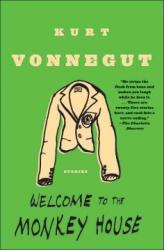
Much like short story anthologies by a single author (see Neil Gaiman’s Smoke and Mirrors and Ray Bradbury’s The Golden Apples of the Sun ), Welcome to the Monkey House is both quintessentially a collection of Kurt Vonnegut’s biting wit and satire as well as an exploration of other genres not often associated with Vonnegut’s style. Fans of Vonnegut will likely have already read some of these short stories (like “EPICAC” and “Tomorrow and Tomorrow and Tomorrow”), but some of the other stories might have been missed and for a good reason.
Overall, Welcome to the Monkey House is a fantastic set of stories, but a few of them fail to have the impact to make them memorable. Granted, these stories are few and far between, and help to break up the well-written social commentaries presented in “Harrison Bergeron” and the titular “Welcome to the Monkey House.” Vonnegut’s ability to show the slippery slope of such ideas as “everyone is equal” and “sex is bad,” respectively, is just as poignant in short form as it is in his novels. The fusion of technology in these stories might seem dated by today’s standards, but they do reveal that Vonnegut was, inherently, a science-fiction writer.
What this collection does well is show that Vonnegut understood the importance of the characters in a story. One of the most entertaining in this collection was “Who Am I This Time?” which contained characters at such extremes of human expression as to be completely unrealistic but somehow relatable and entertaining. Stories like this, which don’t necessarily follow the political or societal commentary that the other stories provide, are nice breathers that give the reader a smile instead of drilling thought-provoking ideas into their skulls. It’s this balance that truly makes Welcome to the Monkey House a must-read.
Vonnegut, true to form as well as outside his element, I give Welcome to the Monkey House 4.0 stars out of 5.
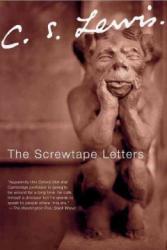
Perhaps the first documented fictional exploration of spiritual warfare, The Screwtape Letters is an expertly crafted examination of what the enemy of our souls is plotting. The reader is given insight into one side of a correspondence between two demons of differing influence and rank, thus providing a “behind the scenes” look at what the enemy is plotting and what they consider to be a victory for them. At moments, it can be difficult to follow along since the context of Screwtape’s “enemy” is really the “good” side of the spiritual battle. Either way, C.S. Lewis has crafted a brilliant satire about how little humans understand of their spiritual lives.
While I wouldn’t necessarily ascribe The Screwtape Letters to pure theology, there are plenty of eye-opening and thought-provoking statements in Screwtape’s letters to his nephew. From the demons’ acknowledgment that pleasure is of God’s design but overindulgence in pleasure is in their realm to the ever-constant battle to bring humanity’s spiritual fervor into the “lukewarm” category, many of the topics covered in this book are still applicable today. In fact, an astute reader can pick up exactly where the demons have gained victories in today’s society filled with apathy and spiritual malaise.
My biggest qualm with this book is that it wasn’t longer. Lewis unquestionably had the creative spark to package theology in an entertaining context via books like this, so I would have liked if there were more letters included in the set to stir up more conversation and induce more moments of reflection in our own lives. If someone were to write the unauthorized sequel to this book that could do so, I would certainly read it in a heartbeat.
The greatest example of writing from an antagonist’s perspective, I give The Screwtape Letters 4.5 stars out of 5.
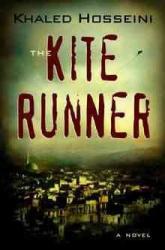
In an odd twist, I haven’t actually seen the movie this book was based on before I started reading it. Sure, I was aware The Kite Runner was a notable book, but I knew little about it other than the peripheral knowledge that comes from seeing an occasional movie trailer. About five years ago, I found this book for cheap at a bookstore and decided to pick it up on a whim. Now that I’ve finally read it, I’m glad I bought it those many years ago.
Unquestionably, it deserved the notoriety it received, as it is a well-written and engaging story.
I’ll admit that there is much I don’t know about the specifics of Afghanistan and Islam. This book certainly opened my eyes to a lot of things I had suspected, but could never confirm. First of all: men are awful. I’m a man myself, but I’m ashamed that so much of human misery is linked to the pride that distorts any of us into racists, sexists, and/or terrorists. While it was likely just a result of correctly depicting a patriarchal culture, The Kite Runner shines a harsh light on the hypocrisy of a fair number of men, most of whom only ascribe to these long-held “ideals” because it helps them maintain power and cover their insecurities.
The emotional heart of the story lies with the relationship between Amir and Hassan. By the end of the book, while I found the “twists” to be logical and almost predictable, they still elicited an emotional response from me. In fact, I almost would have thought this book to be a true story, were it not for the plot being just slightly too convenient at times. Sure, The Kite Runner made me mad that such thinking existed/still exists, but the fact that it caused me feel so strongly about it proves how effective its storytelling is.
A modern classic filled with timeless lessons, I give The Kite Runner 4.5 stars out of 5.
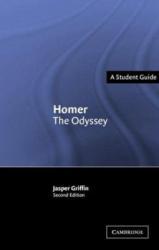
The Odyssey is a very famous book by the ancient author Homer. It is about Telemachus, son of the famous king Odysseus, and his journeys. The literary techniques in this epic, including rhyme scheme, reveal a deeper meaning. I was intrigued by Homer's diction and his use of Greek gods to convey important points. Additionally, the abundance of vivid imagery, intricate metaphors, and extended similes give this epic some zest. The Odyssey is both a fun yet complex read, and I recommend it for everyone.
Reviewer Grade: 11
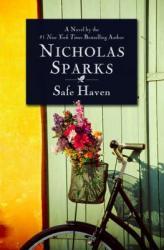
Safe Haven is one of Nicholas Sparks's many romance novels. Main character Katie's status quo is quite somber and desperate, with an abusive husband and no independent life of her own. Safe Haven shows Katie's journey as she struggles to get away from her old life. Although I normally do not enjoy romances, this one was different. The storyline was gripping and thrilling. The writing was perfectly suited for the plot. I recommend this book to anyone, whether you like romances or not.
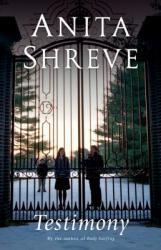
Testimony by Anita Shreve is about a scandal at a local college-prep called Avery. It takes us through the events that led up to the scandal in an intriguing and intense way. The characters are beautifully written, which makes this book all the more tragic. Shreve takes an inhuman event an connects us to it through lovable characters, many different perspectives, and tough ethical dilemmas. Though this book is heart-wrenching, I strongly recommend it for Shreve's lucid writing.
Reviewer Grade: 11
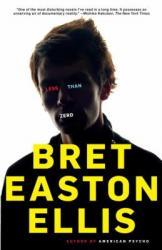
Less than Zero is a 1985 book that reveals the reality and hardships of being a teenager in Los Angeles. Though the majority of the kids in this book are filthy rich and spoiled, their lives are quite depressing.
This book is not for the faint of heart. However, it is extremely well-written and very evocative. Ellis does not hold anything back in writing this, which is part of my appreciation for it. The characters are hauntingly complex yet dry, which serves this book perfectly. I recommend Less than Zero because it feels real, and the bleak tone is very thought-provoking.
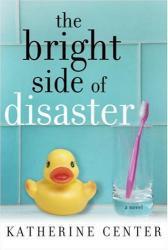
Typical chick lit. Well written but very formulaic. That's okay, it is what it is. I enjoyed the respite from deeper waters.
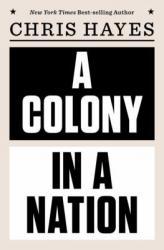
Chris Hayes, a journalist on MSNBC, wrote this book after his experience reporting in Ferguson, Missouri after the killing of Michael Brown by a police officer in 2014. In the book, he posits that we treat people of color in this country the same way that King George treated the colonists in the lead-up to the Revolutionary War: by enacting a police state that exploits the few for some sort of economic gain. We exist as two entities in this country: the Nation, which is concerned with upholding the law, and the Colony, in which we're more concerned with creating order.
This was a quick, excellent read. I'm usually not a fan of using personal anecdotes to make a point, but Hayes does that effectively here: most noticeably because he then will follow an anecdote with data to back up whatever it is he's saying. The anecdotes, though, make the book particularly interesting, especially because they are often presented as a "what if" thought experiment as to how Hayes' experience might have been different had he been a person of color. Part history lesson, part social justice treatise, A Colony in a Nation is a book that's not to be missed, particularly by those that are concerned with issues within the criminal justice system, and the egregious civil and human rights violations that are enacted upon citizens of color in the United States. 5 stars.
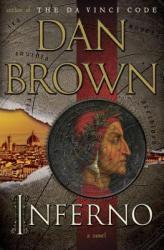
In this, the fourth installment of the Robert Langdon series, Dan Brown has continued to successfully marry science to art, albeit with the same tropes and trappings that occur in the book’s predecessors. With Inferno, we get the same race across Europe explored in Angels & Demons and The Da Vinci Code, with the ambiguity of the antagonist’s motives that fueled The Lost Symbol . All throughout this adventure, the now-standard “female who is an expert in her field” accompanies Langdon as he tries to unravel the mystery and save the world. Langdon continues to be part Indiana Jones and part James Bond, that’s for sure.
Utilizing the standard “temporary amnesia” plot device, Brown refines his style while also increasing the stakes. While previous books in the series had potential impacts on the local and national levels, Inferno takes the antagonist’s plan to a global scale. With the main character as talented with memory as Robert Langdon is, taking away his recent memories was a good way to have him re-learn the situation at the same time the audience does. This also allows for some entertaining twists and turns as characters’ motives are revealed, often taking the plot in a quick 180° turn.
While much of the historical plot of Inferno focuses on the titular work by Dante, the scientific side of the story is incredibly relevant. Previous Brown books like Angels & Demons or The Lost Symbol certainly had some interesting scientific intertwining, but Inferno examines one of the most pressing issues within the scientific community right now. This issue, much like global climate change, has no easy answer, and Brown’s solution through the book’s antagonist is certainly a terrifying answer, even if it is probably the most humane way to go about implementing it.
The best book in the Robert Langdon series to date, I give Inferno 4.0 stars out of 5.
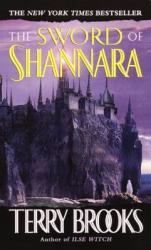
Tell me if you’ve heard this one before: an unassuming character is given the task to use a magical item to destroy a great evil that once terrorized the world. To help this character on their quest is their best friend, a magic-wielding individual, a ranger with a love interest, a dwarf, and some elves. Look, I get that The Lord of the Rings redefined the fantasy genre in the 1950’s, but why were fantasy writers still replicating this formula twenty years later? I only half-paid attention to this derivative plot, mostly because I already had an idea what was going to happen.
Now, I will admit that The Sword of Shannara isn’t completely a 1-for-1 rehashing of The Lord of the Rings, but enough of it is similar that it feels almost too familiar. The plot does divert from the Tolkien formula, but probably not until about halfway through. It was at this point where some interesting and original characters finally arrived on the scene. A mute rock troll and his thieving friend were quite entertaining, and I would almost prefer if the story was about them instead of about this titular and fabled sword of legend.
Just enough of this book was different enough to make it engaging. Sure, some of the same Lord of the Rings plot points were there, albeit in a different order, but the details were just unique enough to give the characters their own little side quests. I know it 's hard to introduce an entire fantasy world in one book, so I’m willing to give this trilogy a bit of slack, but only as long as the next book in the series goes in a new and original direction and doesn’t just follow the Lord of the Rings template.
Moments of originality in a mostly derivative plot, I give The Sword of Shannara 2.5 stars out of 5.
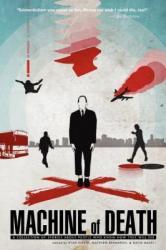
The concept is simple: a machine takes your blood and spits out a card with the means of your demise printed on it. In this collection of short stories, a variety of authors explore what this truly means for individuals, as well as society as a whole. Based off an idea by Ryan North (author of “Dinosaur Comics”), this anthology has plenty of different approaches to the concept that a machine could predict how a person will die. However, many of these ideas hit upon the same concepts and social implications, making the whole thought exercise seem redundant by the end of the book.
Part of me felt the idea itself was a little derivative of Death Note, but with a more ambiguous set of constraints. Each of the short stories included in this anthology had some unique twist on the idea, ranging from humor to romance to horror. Still, every author tended to agree: a machine of death would bring about a dystopian future in some form or other. From governments requiring a “death reading” to mitigate any national disasters to a school needing to know how their prospective students will die so they can save face, the real enemies of this idea tended to be the bureaucracies of humanity.
While I honestly enjoyed the stories included in this anthology, they all seemed to suffer from the “a priori problem.” With each story titled with some way to die, you half-expect the story’s main character to end via that method. The intrigue is more in the how and when; thus providing interest to the story despite practically knowing the ending before it even starts. Granted, that’s part of the appeal of the machine: the ambiguity is as freeing as it is constraining.
A morbid set of interesting short stories, I give Machine of Death 4.0 stars out of 5.
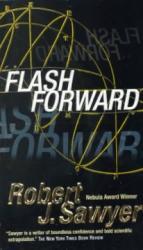
As time marches on, predictions of the future made in the past are tested against reality. In 1984, we didn't have George Orwell's dystopian government. In 2001, we didn't have Arthur C. Clarke's interplanetary travel. Sure, these authors did have a few interesting ideas that did come true, eventually. Still, they were writing well before the events in their books would come to pass. Robert J. Sawyer's Flashforward did not have that luxury. Written in 1999, Sawyer only imagines a future set a decade in the future. For those keeping track at home, Flashforward takes place in 2009, with a vision of a future 21 years ahead of that. Since 2009 has come and gone, there were a few things Sawyer got right, but many he could not have predicted.
The crux of this story is similar to that explored by Machine of Death: everyone in the world gets a glimpse of their future in 2030, thus causing everyone to react based on what they saw. Some were encouraged by what they saw, others despondent and suicidal. The people who had negative visions hoped the future could change, especially if their lives were on the line. Many of the "effects" of the look into the future were logical conclusions, which added an amount of interest to the story but with a cheap cop-out to keep from killing off all the characters. With all the different characters and POVs, it was somewhat difficult to follow along each time the
focus changed, since there was nothing to indicate a change of view.
I also appreciated the conversation this book had in regards to science and the many existing theories about the future. While this exploration of science also included the discovery of the Higgs Boson (which didn't happen until 2012), I was continually distracted by the narrator's pronunciation of "CERN," which sounded more like "sairn" instead of how I thought it was pronounced ("sirn"). I did appreciate the narrator's ability to mimic multiple accents, but that one pronunciation threw me.
A recent book about the "future" that gets a few things correct, I give Flashforward 3.5 stars out of 5.


